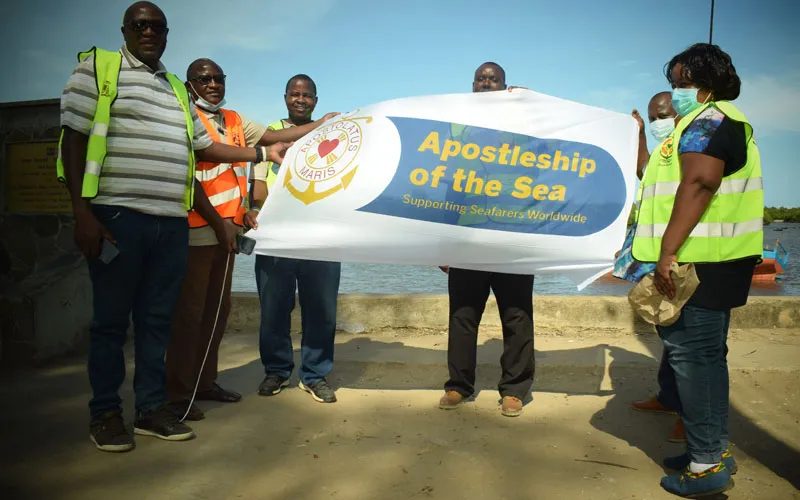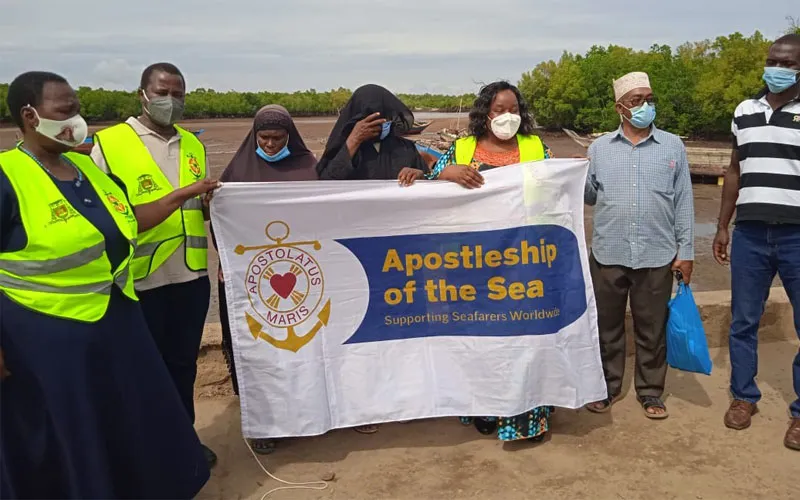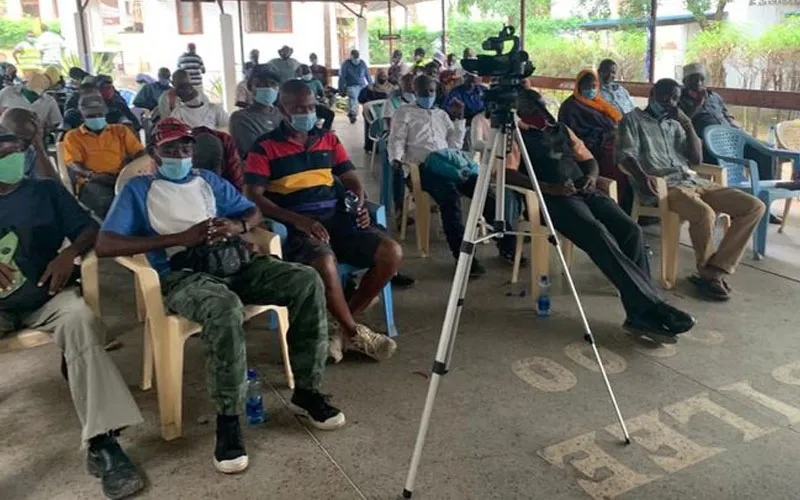The Pontiff noted that during the coronavirus emergency, there have been significant changes to seafarers’ lives and already risky work, involving “many, many sacrifices.”
“Long periods spent aboard ships without being able to disembark, separation from families, friends and native countries, fear of infection… All these things are a heavy burden to bear, now more than ever,” Pope Francis said.
Around 90 percent of the world’s trade is transported by sea, but measures taken to slow the spread of the coronavirus have caused serious complications for the shipping trade in the last few months.
With travel restrictions, many ports and airports have had to close, leaving seafarers stuck at sea and unable to return home.
Fr. Webotsa narrated his encounter with a former staff at a ship in the Kenyan coastal city of Mombasa who he said lost everything to the pandemic towards the end of March last year.
(Story continues below)
“The man had spent a year at the sea. When COVID-19 struck, he couldn’t go back to work because the vessel owner had implemented some stringent regulations for his vessel,” the Priest narrates, adding that trouble started when the man spent four months at home, unable to go to work.
“Suddenly, the family had no bread winner. The wife started grumbling and the man was a stranger to his children who had not seen him in months,” he says.
In the interview with ACI Africa ahead of the July 11 Sea Sunday, Fr. Webotsa said that the world needs to celebrate maritime workers who he said are “an important part of our value chain.”
He says that seafarers in Kenya grapple with many other challenges, including exploitation from bogus recruitment agents and lack of support from the government.
Following the outbreak of COVID-19 pandemic, specifically, this group of workers have lost their jobs due to minimized ship cruising, the Priest tells ACI Africa.
“I have seen workers who were unable to renew their expired certificates in the midst of the pandemic due to lack of funds,” Fr. Webotsa says, and adds that those who went into heavy debts have had their property auctioned.
The Priest who, from 2006 until 2014, ministered among residents of Korogocho slum in Nairobi Archdiocese also shared with ACI Africa about the general mental frustrations, anxiety and despair amongst the unemployed seafarers.
At a fishing community known as Vanga where Kenya borders Tanzania, the fishermen are not appreciated enough despite producing 62 percent of the fish that is consumed in Kenya, Fr. Webotsa says.
“In Vanga, the fishermen’s grievances have been ignored for the longest time. They are only allowed a small section to fish while the rest of the place is set aside for tourists,” the Priest who has also ministered in Kenya’s Catholic Diocese of Lodwar says.
In the Archdiocese of Mombasa, Stella Maris which celebrated 100 years of spiritual and material support to seafarers reaches out to 400 seafarers and their families.

Fr. Webotsa says that the ministry engages with the government on the issues affecting the maritime workers and also accompanies the workers spiritually by celebrating Masses with them on the shore and providing counselling services to those with family problems.
He says that the office has implemented a COVID-19 relief project targeting seafarers including fishers and their respective families. The Priest says that the project has helped the workers regain their self-esteem, dignity and self-worth that was eroded by the pandemic.
Services in the project include counseling, food, safe space for sharing, and school supplies for identified school children. In a few cases, medical support was offered to seriously distressed seafarers, the Comboni missionary shares.
The Priest who has worked in the Archdiocese’s Integral Human Development Commission since January says that seafarers’ ministry has been dormant for years.
“Mombasa has always had this office but it has been dormant and we are working to bring life to it. At the moment, there isn’t so much awareness about it,” he says, adding that the first meeting with seafarers in March attracted 200 representatives of their union.
The Kenyan Priest says that the June 11 event that will be attended by the country’s shipping and maritime officials is aimed at creating awareness on the Apostolate and the situation of the seafarers.
“Our hope is to make seafarers feel appreciated for the work they do. We are bringing in government officials specifically for this purpose, to listen to the plight of this group of workers,” Fr. Webotsa told ACI Africa July 5.
Agnes Aineah is a Kenyan journalist with a background in digital and newspaper reporting. She holds a Master of Arts in Digital Journalism from the Aga Khan University, Graduate School of Media and Communications and a Bachelor's Degree in Linguistics, Media and Communications from Kenya's Moi University. Agnes currently serves as a journalist for ACI Africa.










